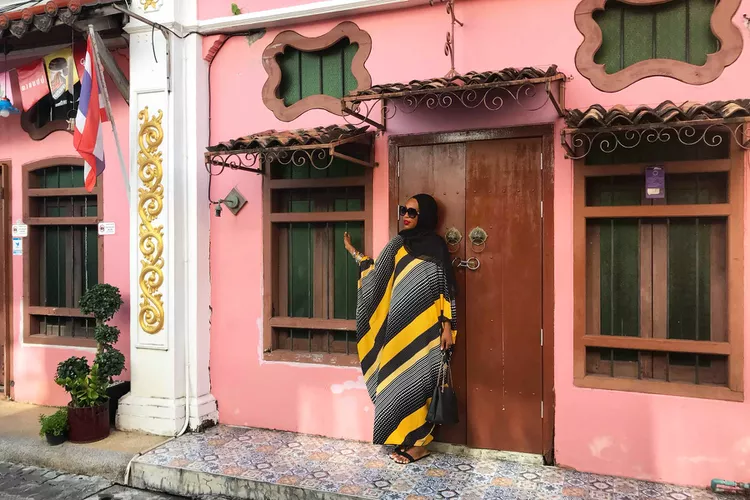A Black American Muslim expat shares her story on living and traveling around the world.
I would have never guessed that the trajectory of my life would have led me to live in multiple countries around the world. I didn’t even know that the possibility would open itself to me because prior to making the leap, I was focused on ascending in my career as a journalist, and more importantly, trying to survive my day-to-day life with multiple incomes that didn’t match my level of bills. For years, I was living on quicksand devoid of a firm ground.
I knew that many generations of Black expatriates existed before me, and that we have lived beautiful lives abroad, but I never saw myself being among cultural dignitaries such as Nina Simone, Maya Angelou, and James Baldwin, all of whom chose to live outside of the United States for various amounts of time. Ninety-six years prior to my move to Egypt — the first country I expatriated to — pan-African activist Marcus Garvey created the Black Star Line, a steamship company that provided transportation for Black people in America to expatriate to Africa for the sake of creating better lives for themselves, including gaining economic independence. I was merely reinventing the wheel.
Being an expat comes with a level of privilege that, as a Black American, I didn’t experience until after I left the U.S. Expatriation was my introduction to a better quality of life, and once I realized that I could have a good work/life balance, I conceded to the notion that I would be a forever expat.

For the first time in my adult life, I was able to afford my rent and enjoy extracurricular activities like shopping and going to the movies — all the while still having money left by the time my next monthly salary arrived. Making $2,000 a month was more than enough because the cost of living in many countries is much lower than in the U.S. For example, the rent for our two-bedroom high-rise apartment in China was equal to $450, with a month’s worth of groceries adding up to an additional $200.
Living without worry about extreme poverty or hardships of loss or safety created a case of imposter syndrome that somehow I wasn’t supposed to live this way because Black people, globally, have it extremely hard. To say that expatriation is some cure for racism would be false, but it gave me better insight into cultures around the world, and I became a lot of people’s new normal as a Black American Muslim woman living outside of my home country. I was doing things like going out to nice restaurants and taking trips to Europe and Asia. I learned that life could be about enjoying the fruits of your labor, as others are given the opportunity to do.
Understanding Cultural Identity and Representation
I also understood that I could show up in the world as my full self, and help others have another picture of what it is to be either Black or Muslim, or female, or American. Stereotypes have divided the world, creating caricatures of people rather than letting them represent themselves. Expatriation has taught me to see people with a clean lens, and I hope that their interactions with me do the same.
Since meeting my husband abroad and giving birth to our son (also abroad), we extend the meaning of expatriation to an identity of global citizenship. We are Black Americans who are not restricted to belonging to just one corner of the world. We also allow new cultures to envelop our lifestyle by learning new languages, respecting the places we go, and staying open-minded and aware that our differences make us unique, but not wrong.

As an American, I was introduced to languages other than English in my home. Arabic and Spanish were spoken, but not to an extent that I would consider myself fluently multilingual. Still, learning languages is how I survived abroad because it allowed me to better understand people — not just in their language, but what they value and who they are as people.
Only 20 percent of Americans can speak another language beyond English, though there are nearly 7,000 documented dialects worldwide. Having lived in Asia, Europe, Africa, and North America, speaking to people in their native tongue has enabled me to feel confident, knowing that I can go anywhere in the world without fear. As Black people in America, we are dodging constant degradation through media, employers, school, and simply walking out the front door. We are pinned as threats, lesser, and not valuable. Living abroad, I get the right to exist in the world as my whole self and thrive.
And now, I am raising a child who isn’t confined to learning what his limitations are before understanding his greatness, intellect, and specialness.
To be a Black American expat means understanding that the work my ancestors did and fought for, with as much education and as little resources as they were allowed, was not in vain. I am a product of hardworking people who always strived for the “American dream,” an ideology that places value in a safe home, clean clothes, and food to eat.
Now, I am living in a much more beautiful reality, while embracing every race, color, ethnicity, and culture who has their doors open for me.





